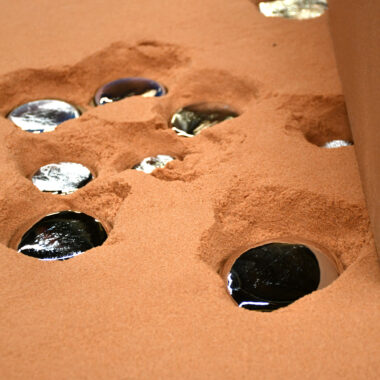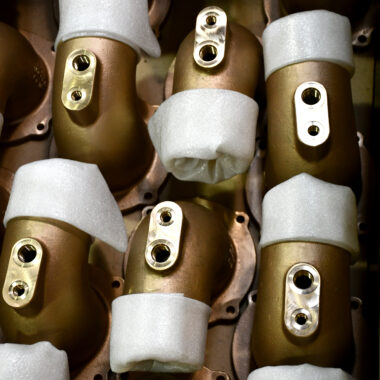Getting Excellence in Light Weight Aluminum Spreading: Crucial Advice
In the world of aluminum precision, top quality and casting are vital. From thoroughly choosing the right products to developing putting strategies and ensuring thorough finishing touches, attaining quality in aluminum spreading demands a mix of know-how and interest to information.

Products Selection
Selecting the suitable materials is critical in guaranteeing the success and top quality of your light weight aluminum casting tasks. The selection of products substantially influences the last homes of the casted products, including toughness, sturdiness, and general high quality. When selecting materials for aluminum spreading, it is vital to think about aspects such as the sort of aluminum alloy, the desired mechanical properties, and the spreading approach being utilized.
Light weight aluminum alloys are commonly made use of in spreading due to their lightweight nature and outstanding mechanical residential or commercial properties. The choice of the certain alloy relies on the application requirements, with alternatives varying from high-strength alloys ideal for structural components to corrosion-resistant alloys for marine atmospheres. Recognizing the features of different light weight aluminum alloys is important for selecting the most proper one for your job.
Moreover, the spreading method employed, whether it be sand spreading, die spreading, or investment casting, additionally influences product selection. Each spreading technique has its own demands in regards to product fluidity, thermal conductivity, and mold and mildew compatibility. By very carefully taking into consideration these elements, you can ensure that the products picked are tailored to meet the details needs of your light weight aluminum casting project.
Mold Prep Work
In the realm of light weight aluminum casting, the careful prep work of molds stands as a critical precursor to the real spreading procedure. Mold and mildew preparation includes numerous vital actions to ensure the top quality and precision of the last actors item. To start with, it is vital to cleanse the mold completely to get rid of any type of dust, deposit, or previous spreading remnants that might compromise the new cast (casting aluminum illinois). This cleaning process helps preserve the honesty of the mold and mildew and avoids flaws in the end product.
Next, applying an appropriate mold covering is important to assist in the launch of the actors aluminum and improve the surface area coating of the part. The kind of covering used will certainly rely on aspects such as the complexity of the mold, the desired surface area finish, and the casting material. In addition, correct airing vent and gating systems must be incorporated into the mold and mildew layout to enable for the smooth circulation of liquified light weight aluminum and avoid the formation of air pockets or issues in the actors part.
Melting and Putting Strategies
To attain effective light weight aluminum spreading, mastering efficient melting and putting techniques is paramount for ensuring specific and top notch results. The melting procedure is an important action in light weight aluminum casting, see here where the steel is heated up to its liquid state. It is important to keep an eye on the temperature closely to stop getting too hot, which can result in inadequate casting quality. Using induction furnaces or gas-fired crucible heating systems can give exact temperature control and efficient melting.
When the light weight aluminum reaches the preferred liquified state, correct pouring methods have to be employed to transfer the steel into the molds. The speed and uniformity of the put are essential consider achieving uniform filling of the mold and mildew dental caries and decreasing the threat of issues like air entrapment or insufficient casting. Gravity pouring, low-pressure casting, or centrifugal spreading approaches can be made use of based upon the specific requirements of the job.
Cooling and Solidification Control
Achieving accurate control over the cooling and solidification process is vital in light weight aluminum spreading to keep the stability and top quality of the last casted items. Correct air conditioning and solidification control aid prevent problems such as porosity, hot tears, and shrinkage that can compromise the mechanical buildings of the casted light weight aluminum parts.
One necessary facet of air conditioning and solidification control is the layout and placement of cools. Cools are metal items tactically put in the mold to absorb heat swiftly from details locations of the spreading, advertising uniform solidification and reducing the possibility of issues. Furthermore, managing the cooling price by changing the mold and mildew's material, style, and the application of protecting finishings can influence the microstructure and mechanical properties of the final spreading.
In addition, tracking and managing the air conditioning procedure with the use of thermocouples and computer system simulations permit real-time modifications to optimize air conditioning rates and solidification patterns. By carrying out these strategies, shops can improve the quality and uniformity of their aluminum spreadings, satisfying the stringent needs of various sectors.
Finishing and High Quality Evaluation
Properly carried out finishing and high quality inspection procedures are vital in guaranteeing the total integrity and integrity of light weight aluminum castings, constructing upon the precise air conditioning and solidification control techniques utilized during the casting procedure. Finishing methods such as grinding, fining sand, and polishing aid remove excess material, smooth harsh surfaces, and boost the spreadings' last appearance. These procedures not only improve the visual allure but additionally guarantee dimensional precision and functionality.

Final Thought
Finally, accomplishing quality in aluminum spreading calls for cautious factor to consider of products selection, thorough mold and mildew prep work, accurate melting and putting techniques, efficient cooling and solidification control, along with extensive ending up and quality assessment processes. By adhering to these important ideas and methods, manufacturers can make sure the production of high-quality aluminum castings that satisfy sector requirements and consumer expectations.
When selecting materials for aluminum spreading, it is important to take into consideration factors such as the type of aluminum alloy, the preferred mechanical residential properties, and the casting method being used.
Furthermore, the casting technique used, whether it be sand casting, die casting, or investment casting, likewise affects product option.In the world of light weight explanation aluminum spreading, the thorough preparation of molds stands as a crucial precursor to the actual spreading process. Gravity putting, low-pressure spreading, or centrifugal casting methods can be used based on the particular demands of the project.
